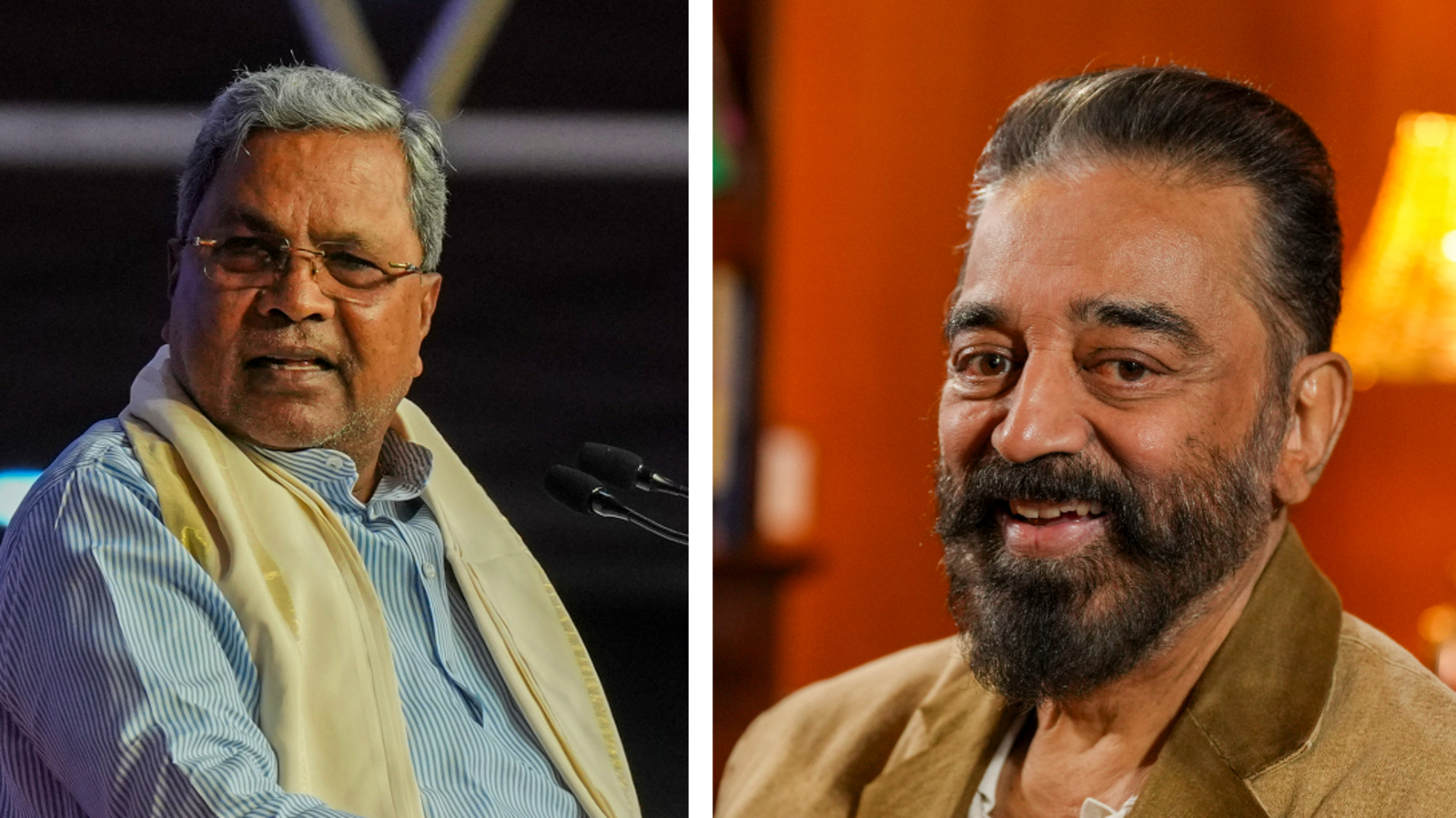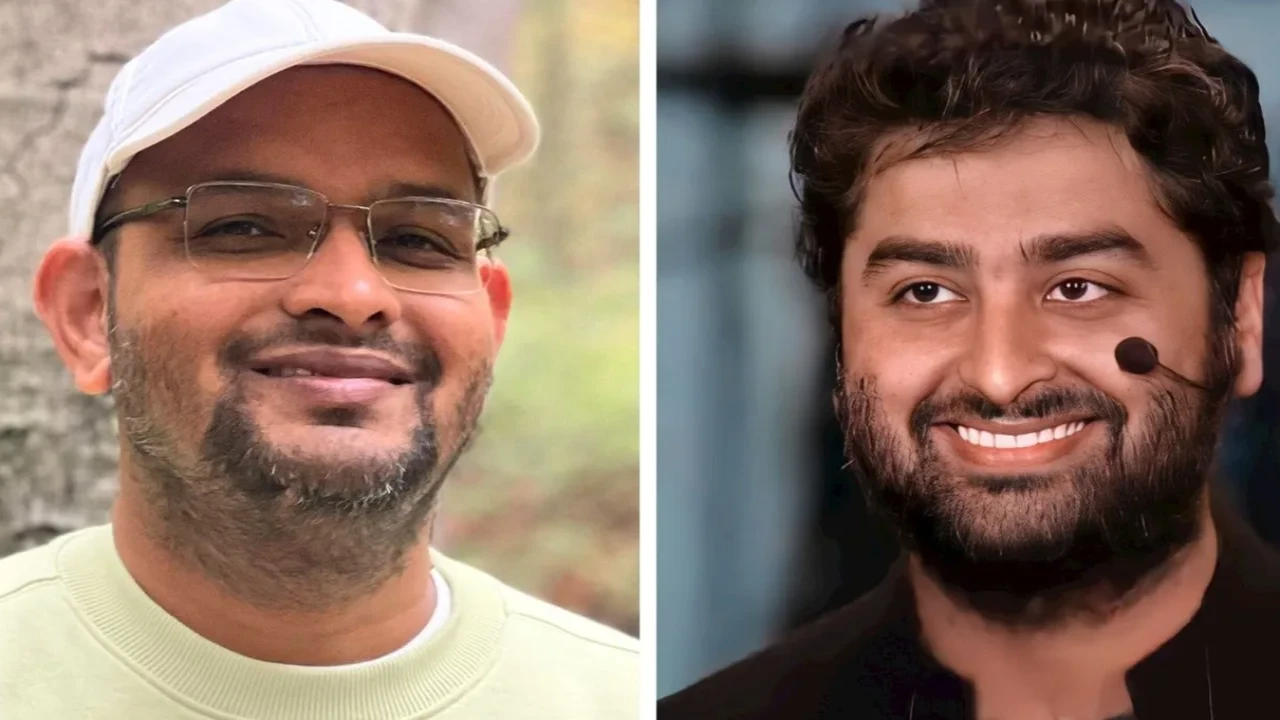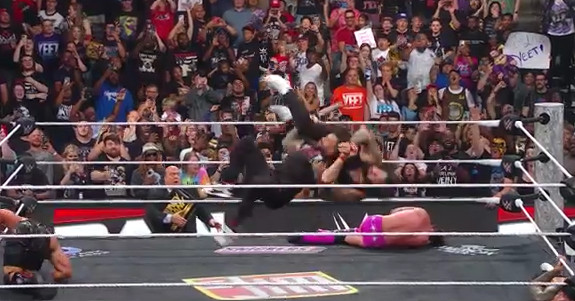Karnataka chief minister Siddaramaiah on Wednesday took a dig at Kamal Haasan over his “Kannada is born out of Tamil” remark, saying that the actor is not aware of the long history of the language.

“Kannada has a long-standing history,” Karnataka CM Siddaramaiah said, according to ANI. “Poor Kamal Haasan, he is unaware of it.”
A controversy erupted after Kamal Haasan, at the audio launch of his upcoming film ‘Thug Life’ in Chennai, claimed that ‘Tamil gave birth to Kannada”.
The comments have sparked outrage among several pro-Kannada outfits. These groups staged protests against Haasan in various parts of the state, like Belagavi, Mysuru, Hubballi, Bengaluru, among others.
The Karnataka Rakshana Vedike (KRV), one of Karnataka’s most vocal Kannada organisations, has now threatened to boycott Haasan’s films across Karnataka unless he issues an unconditional apology.
“Kamal Haasan must apologise unconditionally to the people of Karnataka for belittling our language. Until he does, we will not permit his movies to screen anywhere in the state,” Gowda said, speaking to reporters.
Also Read | Kamal Haasan set to enter Rajya Sabha with DMK support
“This is not just about one comment—it’s about respecting the identity of Kannada and Kannadigas. We urge him to correct his mistake and remain silent on Kannada hereafter.”
Politicians react
Reactions to the controversy also came from political quarters.
Congress MLA from Karnataka, Rizwan Arshad, expressed his disappointment over Haasan’s remark, calling it unfortunate.
“What kind of a debate is this? The Kannada language has a history of thousands of years… Kannada and Tamil are ancient languages and part of our country’s foundation… Is this debate necessary at a time when all of us have to be united? … I did not expect Kamal Haasan to make such a statement. It is unfortunate,” Arshad said, according to ANI.
DMK Spokesperson TKS Elangovan, meanwhile, blamed the BJP for stirring the controversy, accusing the party of creating trouble and dividing people by misrepresenting historical references as insults.
According to ANI, he defended Hasan, noting that a language’s credit is based on how it is being used and not how it was born in the first place, arguing that his comment was likely a historical citation rather than a personal opinion.





